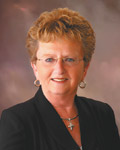June 27, 2018
Your Advocacy
 By Diana Spranger
By Diana Spranger
GolderCare Solutions
Role Reversal with Older Parents
As a young girl growing up, I remember thinking “Someday” I can do what I want. I dreamed about being in high school, driving a car, living on my own, drinking alcohol, and being old enough to vote. As years passed I even had ‘day dreams’ of finding Mr. Perfect and getting married, having children and on and on.
I must admit that in all my ‘day dreaming’ about how my life would turn out, I never once dreamed about being the caretaker for my mom and dad. That just never crossed my mind. Now, as an adult, I sit and visit with friends my age and somehow the conversation always seems to end with discussions of dealing with our parent’s health and life issues. At 55+ somehow everything began to change with responsibilities for Mom and Dad. It seems that without warning, my parents were changing quickly, which posed many life and health questions and needs. On a daily basis I was facing issues or sometimes a crisis. Often times it meant a daily visit to see them and make sure they were okay. The more I visited, the more things I noticed which I found troublesome and caused great concern for them and their safety.
My profession in life just happens to be a Registered Nurse, but when it comes to my own parents, it didn’t seem to be all that helpful. When I dealt with other client’s issues, it seemed easier to share answers to their questions and needs. The problem came when I found myself emotionally drowning in the problem and potential answer. I’ve always known I was a “Daddy’s Girl,” I also knew that I had a loving relationship with my Mom but because I had so many of her traits and behaviors, we sometimes clashed in our decision making. This made problem solving quite a challenge.
I knew I must step up and become their Advocate but do it in such a way that I did not take their dignity and pride from them. This is not an easy task. Frequent trip to doctor’s appointments and follow-up tests, blood draws, change in medication; it all became quite overwhelming from time to time, even for this R.N. The financial issues were a challenge in and of themselves. Do you allow them to continue to manage their financial issues or do you take over? Their living situation had to be taken into consideration, as well as my Dad’s driving of the car. Did they need extra help in the home or was that possible? In the months to come, how did I see that evolving? I must begin to plan ahead! Do I need help and when do I get others involved? Are my siblings on board?
Over the months and years that followed; I have learned a few things that may prove helpful.
- Be proactive. Do your homework. Consult with professional advocates such as GolderCare to discuss your parents’ insurance, medical, financial and care issues. The internet has a lot of information but sometimes feels like “drinking from a firehose” as you are bombarded with so much information. Talk to your parents’ doctor and pharmacist to be fluent in their diagnosis and medications.
- Communicate openly and honestly with your parents. Work diligently to build trust. If they trust you, it will make the process go much easier. In communicating with them, be patient and wait on their answers. If you attend a Doctor’s visit, allow them to respond as much as possible. Don’t put words in their mouths. Allow them to answer as many questions as they can; when they don’t have the answers, more than likely they will turn to you for assistance. They feel as though they are losing control of so much at this point in life. If you insist on taking charge, you may damage their self-respect, leading to them feeling powerless and afraid, often leading to anger and depression.
- Pick your battles. Decide what issues are truly life-threatening and deal with those first, you cannot and will not win every battle. Let them speak their mind about what issues are important to them and those they truly don’t feel strongly about.
Keep in mind, as we refer to “Role Reversal,” we can never truly reverse the child/parent role. As children, we had no choice but to allow them to make decisions on our behalf; as adults, even though they may need our interventions, they may not want or receive them. They are adults and do have rights. In cases of extreme mental limitations, it is hard not to behave as the parent, but if your parent is functioning cognitively – try not to take on the parenting role, become a caring and listening to adult child.
Don’t forget to care for yourself in the midst of caregiving for a parent or parents. You must be healthy to be a caregiver.
I once read, “Is there no greater calling for an adult child to care for an aging Parent”?
Please consider joining us at our upcoming Empowerment Series: How to Talk to the Doctor about Mom on July 11th & Role Reversal with Your Aging Parents on August 8th. Both will be held from 10 to 11:30 a.m. – 1900 State Street, Bettendorf.
Diana Spranger is a registered nurse with over 30 years of long-term care experience. She works part-time for Goldercare Solutions. She is an avid reader and has a passion to continue to learn new concepts and ideas daily. You can reach GolderCare Solutions Unlimited, LLC at (309) 764-2273.
Filed Under: Health & Wellness, Personal Growth
Trackback URL: https://www.50pluslife.com/2018/06/27/your-advocacy-22/trackback/


